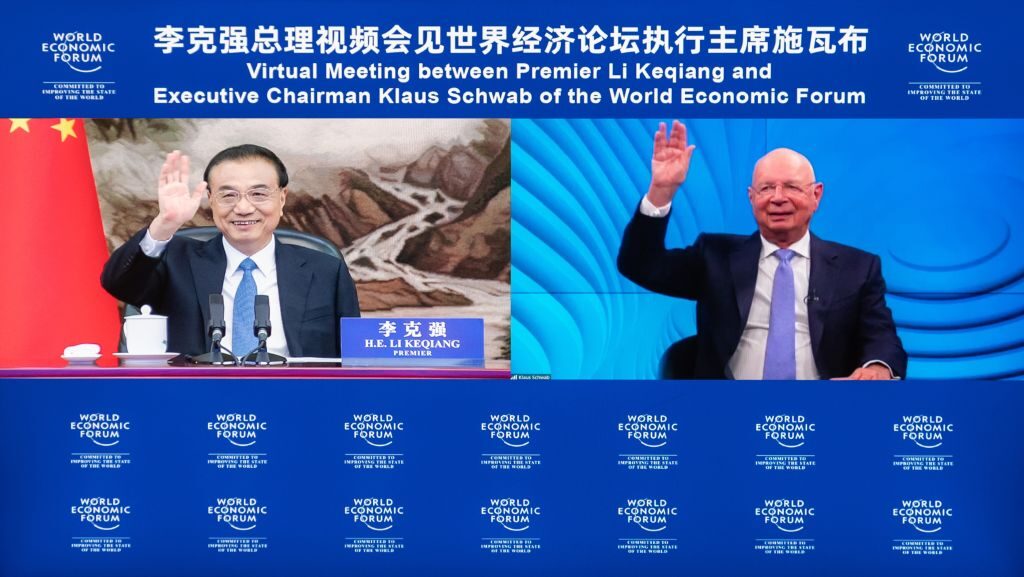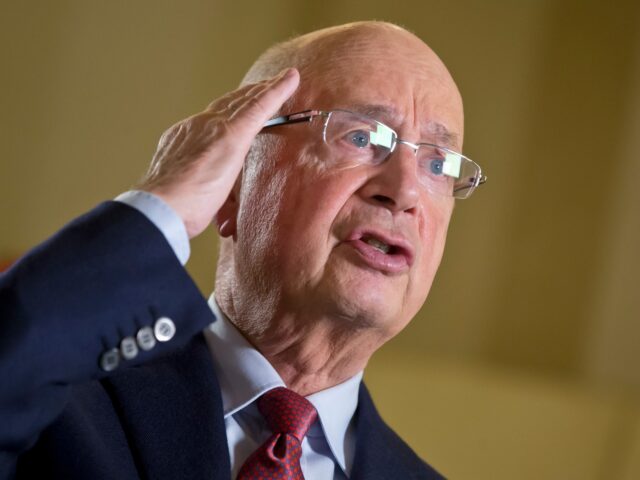Banking, finance, cryptocurrencies, climate, racism, artificial intelligence, workplace robotics, global governance, and cybercrime. Are there any issues the unelected, private club that is the World Economic Forum (WEF) can’t tackle on behalf of the serfs?
Clearly not.
When the preening elites fly in to Davos, Switzerland, a week tomorrow expect to see – and hear – about all those topics and more as the WEF seeks to “address the state of the world and discuss priorities for the year ahead.”
Following its foundation in 1971 by German engineer and academic Klaus Schwab, the WEF has met annually to tackle what it sees as the issues of the day and deliver guidance to invited members and guests, and through them influence the world at large.
In 1973, the annual meeting endorsed the Davos Manifesto, a “code of ethics for business leaders” which was updated in 2020 to set out the purpose of business in the Fourth Industrial Revolution – itself a concept coined by Schwab in his 2016 book.
This year’s meeting will be no different. It is headlined “Cooperation in a Fragmented World” and will follow on from the Great Reset as declared at the Davos summit of 2021.
Watch below as the launch of the Great Reset is announced:
In the run-up to the 2023 event, Schwab announced last November that Communist China will likely serve as a “role model” for many countries as the global community embarks upon a “systemic transformation of the world,” as Breitbart News reported.
In an interview with the Chinese state-run television network CGTN, Schwab heaped praise on the Communist government in Beijing for being a leading figure in his vision of the aforementioned Great Reset of capitalism to usher in the “world of tomorrow.”
A visit to the WEF’s own previews shows just what is going to be tackled at the luxurious ski resort in a few weeks time, what command and control mechanisms are possible to align the world with WEF objectives, and what has come before.
“Global rules to crack down on cybercrime” is one issue already addressed by the WEF. It has published a paper with that title, looking at how criminals use the online world to fleece innocents of their money.
A “major structural change to the internet” is just one simple solution the WEF points to, adding “We urgently need international rules that are enforced as well as a more expansive approach that fosters cyber resilience.”
Ditto the inherent racism the WEF sees in healthcare, declaring it “can cause avoidable disease and premature death among groups of already disadvantaged people.”
The future course of business is also addressed against a background of Schwab’s previous praise of WEF members as representing the very best of humanity, endowed with the collective means “to change the world.”:
Video Source: World Economic ForumA new WEF paper enthuses that online “bots” can take many of the jobs humans undertake in the workplace today while working alongside them.
It sets out we will all be happier working with robots, alleging:
-
Digital workers are intelligent software bots that automate everyday business processes like data entry, invoicing, or system queries.
-
They will take over many repetitive and mundane tasks, creating new opportunities for businesses and workers.
-
People aren’t just more productive when they work with digital workers; they are also happier.
Just what the future holds for cryptocurrencies is another issue that consumes the WEF.

Chinese Premier Li Keqiang meets with Klaus Schwab, executive chairman of the World Economic Forum WEF, via video link at the Great Hall of the People in Beijing, capital of China, July 19, 2022. Zhai Jianlan/Xinhua via Getty Images)

Hungarian-born U..S investor and philanthropist George Soros addresses the assembly on the sidelines of the World Economic Forum (WEF) annual meeting in Davos on May 24, 2022. (FABRICE COFFRINI/AFP via Getty Images)
The organization has a paper on that, announcing “We could now see the handover of crypto technology and blockchain infrastructure to more regulated and established institutions.”
It concludes: “Cryptography and blockchains will continue to be integral parts of the modern economic toolkit, despite the great harm these tools may have caused when wielded by the wrong people.”
The paper does not set out just who “the wrong people” are, although the WEF has previously known just who to groom to help disseminate its message:
The WEF Annual Meeting for 2023 runs from January 16 to January 20 in the luxury ski resort town of Davos, Switzerland. Some 2,500 representatives of national governments, businesses and civil society will fly in from around the world to attend.
Read more here

COMMENTS
Please let us know if you're having issues with commenting.